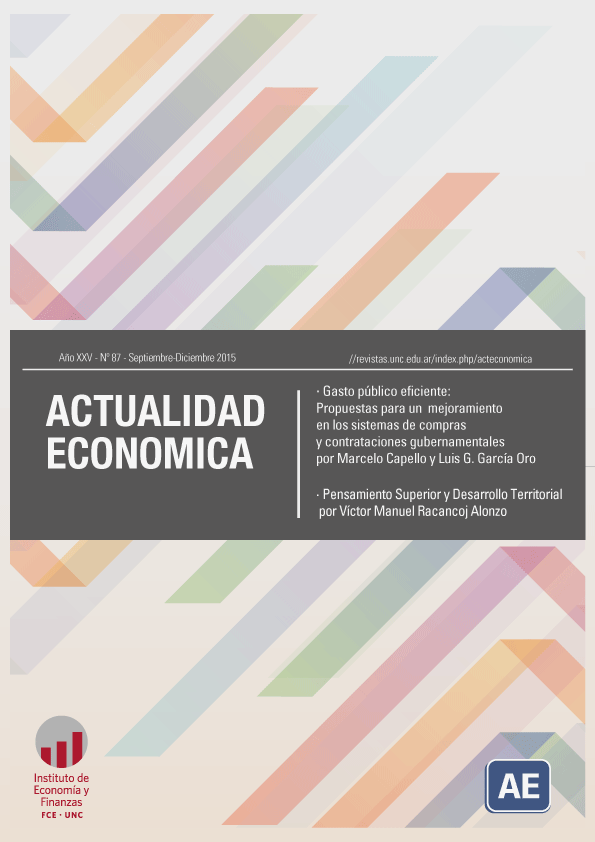Superior Thinking and Territorial Development
Keywords:
Superior thought, Territorial Development, Sense of belonging, competitionAbstract
This observation aims to explain the fundamental role of the superior thought, in the formulation and practice of local territorial development models, to contribute substantively in the transformation of adverse socioeconomic conditions now living indigenous and rural communities in many countries, such as Guatemala, a situation that can be summarized in high poverty and malnutrition. But superior thought, must be the competence of the population with local belonging, because if and only if this condition exists, it will validate and provide viability to territorial development. To achieve superior thought skills in local areas, there is a need to overcome obstacles in the university model, which today are familiar to seeing and thinking; models that have the characteristics of colonial heritage, dysfunction with the economic, cultural, social and political problems of society and the denial of ancestral knowledge.
Downloads
References
Albuquerque F. (2004). El Enfoque del Desarrollo económico local, ed. OIT. Buenos Aires Argentina.
Lieper J. L. (1993). Métodos e hipótesis científicas, 2da. Edición, Ed. Trillas. México.
Magaloni I. (1971). Educadores del Mundo Costa-Amic, 1ra. Edición, Editores. México.
Racancoj Alonzo V. M. (2006). Socio economía Maya Pre colonial. 2da. Edición, Ed. Xolsamaj. Guatemala.
Racancoj Alonzo V. M. (2012). Construcción del Concepto Económica Maya. Ensayo Inédito
Downloads
Published
Issue
Section
License
Those authors who have published with this journal, accept the following terms:
Authors will conserve their copyright and guarantee the magazine the right of first publication of their work, which will be simultaneously subject to the Creative Commons Attribution-NonCommercial-NoDerivative 4.0 International License that allows third parties to share the work as long as the author and first publication of this magazine are indicated.
Authors may adopt other non-exclusive license agreements to distribute the published version of the work (e.g., deposit it in an institutional telematic archive or publish it in a monographic volume) provided that the initial publication in this journal is indicated.
Authors are allowed and encouraged to disseminate their work through the Internet (e.g., in institutional telematic archives or on their website) before and during the submission process, which may lead to interesting exchanges and increase citations of the published work. (See The effect of open access)









